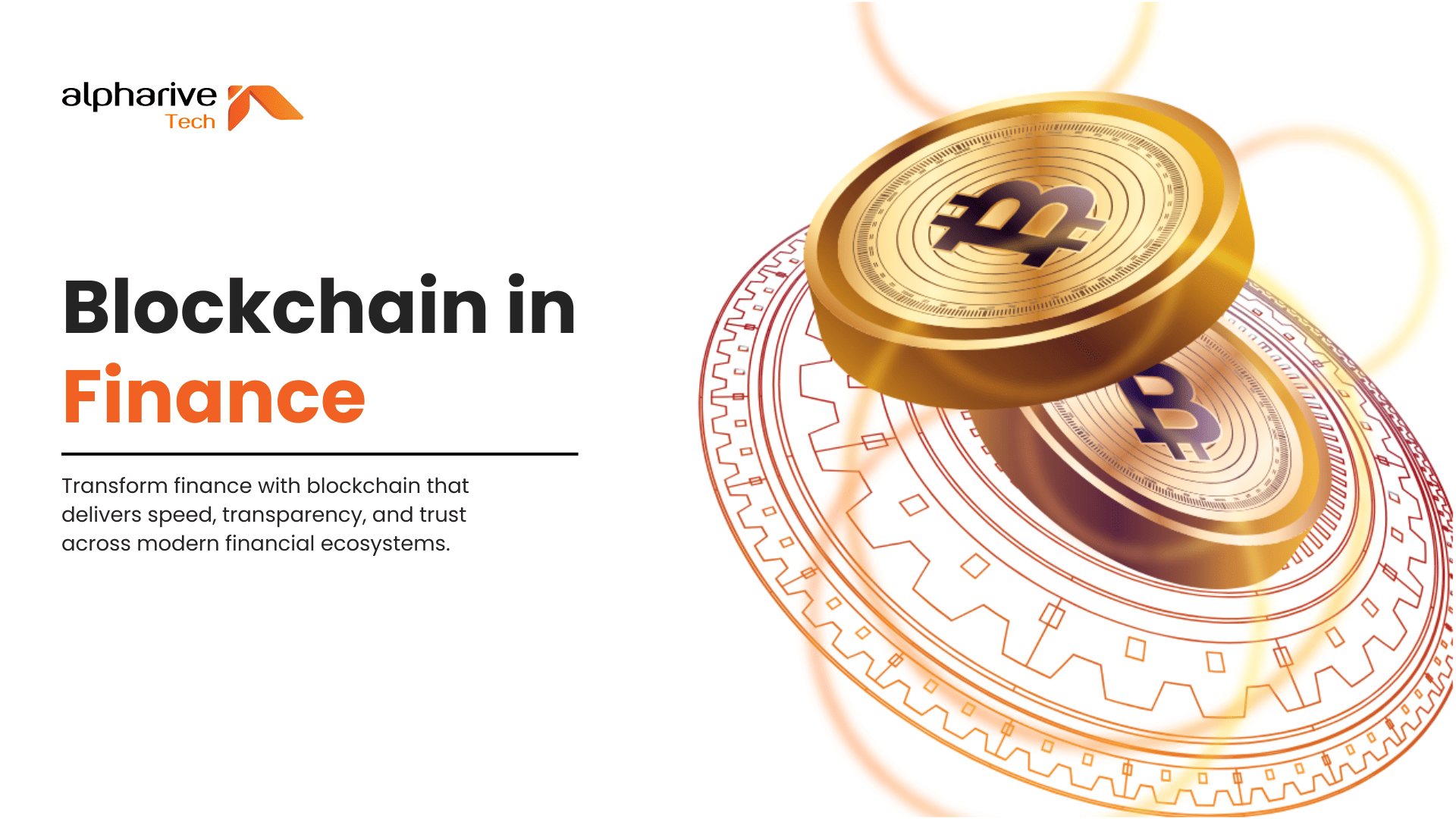
Imagine sending money across continents in seconds, with zero middlemen and total transparency. That’s not a fintech fantasy, it is possible with blockchain in action. It is rewriting the rules of finance and redefining what trust looks like in a digital world. The finance landscape is changing faster than ever and blockchain is leading that change. What began as a technology for digital currencies is now the backbone of next-generation fintech innovation. From instant payments to self-executing contracts and borderless transactions, blockchain is transforming how money moves and how trust is built. The question isn’t if finance will adopt blockchain, but how far this transformation will go.
Blockchain and finance share a natural connection because both deal with trust, verification, and record keeping. In traditional finance, banks and intermediaries are the custodians of trust. With blockchain, that trust shifts to cryptography and code. Each transaction is stored across multiple nodes, ensuring transparency and making it nearly impossible to alter data without consensus.
This decentralization transforms the financial structure from centralized control to shared accountability. It allows peer-to-peer settlements, digital asset transfers, and programmable transactions without relying on middlemen. Financial institutions adopting blockchain are seeing fewer reconciliation delays, lower transaction costs, and improved auditability all driving a more efficient and open financial ecosystem.
The revolution of blockchain in the finance industry is changing how value is exchanged and managed. Instead of depending on traditional intermediaries, blockchain empowers participants to transact directly with confidence. Technologies like smart contracts and distributed ledgers are turning complex financial operations into seamless, automated workflows. This is not just an upgrade, it's an overhaul of the financial infrastructure itself.
Beyond innovation, this revolution is gaining real momentum across the globe. Banks, startups, and governments are exploring applications like tokenized securities, digital identity, and central bank digital currencies (CBDCs). Decentralized finance (DeFi) platforms are expanding rapidly, showing how blockchain can create transparent lending, borrowing, and trading systems. Together, these changes mark a fundamental shift toward open, programmable, and user-driven finance.
Blockchain in the finance industry has countless applications that are redefining how institutions operate and how customers experience financial services. Below are key use cases where blockchain creates measurable impact
Smart contracts enable automated loan agreements by embedding terms like interest rates and repayment schedules directly into code. They ensure transparency, eliminate manual processing, and execute transactions instantly without human oversight or third-party verification.
Blockchain simplifies cross-border payments by connecting global financial institutions on a shared ledger, eliminating multiple intermediaries. This results in faster transactions, lower remittance fees, and real-time settlement visibility that traditional banking systems can’t achieve.
Through blockchain-based asset tokenization, tangible assets such as real estate, art, and equities can be divided into digital tokens. This approach enhances liquidity, broadens investment access, and allows seamless trading across decentralized financial markets.
Blockchain revolutionizes trade finance by digitizing documents, automating verification, and providing a transparent ledger of transactions. This reduces fraud, accelerates settlements, and strengthens trust among exporters, importers, and banks across global trade ecosystems.
Decentralized identity and KYC systems give users full control of their credentials while letting institutions verify data securely. This reduces onboarding friction, minimizes identity theft, and ensures compliance with evolving financial regulations worldwide.
In the insurance sector, blockchain-powered smart contracts automate policy validation and claims settlement. They trigger payouts based on verified conditions, reducing administrative errors, preventing fraud, and significantly improving customer satisfaction and trust.
Adopting blockchain in finance is not without challenges. The first major obstacle lies in regulation and compliance. Since financial institutions operate in highly regulated environments, the lack of standardized global frameworks for digital assets creates uncertainty. Meeting AML, KYC, and data privacy requirements while using decentralized technology can be complex and time-consuming, often slowing enterprise adoption.
Another critical challenge involves scalability and integration. Public blockchains sometimes face limitations in transaction throughput, latency, and energy efficiency, which may not align with high-frequency financial systems. Integrating blockchain platforms with existing core banking systems also requires specialized expertise and architecture redesign. Despite these barriers, the industry continues to experiment with hybrid and private blockchain models to balance performance with compliance.
The benefits of blockchain in fintech extend across operations, transparency, and innovation, redefining how modern financial systems function.
1. Transparency: Every transaction is recorded on an immutable ledger accessible to all authorized parties, enabling traceability and fostering customer trust.
2. Security: Advanced cryptographic techniques safeguard financial data, making transactions resistant to hacking, manipulation, or unauthorized access.
3. Efficiency: Blockchain streamlines processes by reducing intermediaries, enabling real-time settlements, and cutting operational overhead across financial networks.
4. Liquidity: Tokenization introduces fractional ownership and enables 24/7 trading of assets, improving liquidity across traditional and alternative markets.
5. Trust: Consensus algorithms validate transactions automatically, removing dependency on a central authority and ensuring fairness across participants.
6. Innovation: Blockchain provides the foundation for DeFi, decentralized exchanges, and programmable payments new financial models driving the next wave of fintech growth.
At Alpharive, as a blockchain development company we help fintech companies transform ideas into scalable blockchain-powered solutions. From designing secure smart contracts to integrating blockchain with financial infrastructure, our team blends technical excellence with domain insight. We understand the compliance, scalability, and performance challenges unique to finance and deliver tailored solutions that meet them head on. Whether you aim to launch a tokenized platform, streamline payments, or explore DeFi integration, build your blockchain fintech solution with Alpharive today.
Recent Insights
Contact Us
Partner with Us for Comprehensive IT Solutions
We’re happy to answer any questions you may have and help you determine which of our services best fit your needs.
Your benefits:
Client-oriented
Independent
Competent
Results-driven
Problem-solving
Transparent
Schedule a Free Consultation